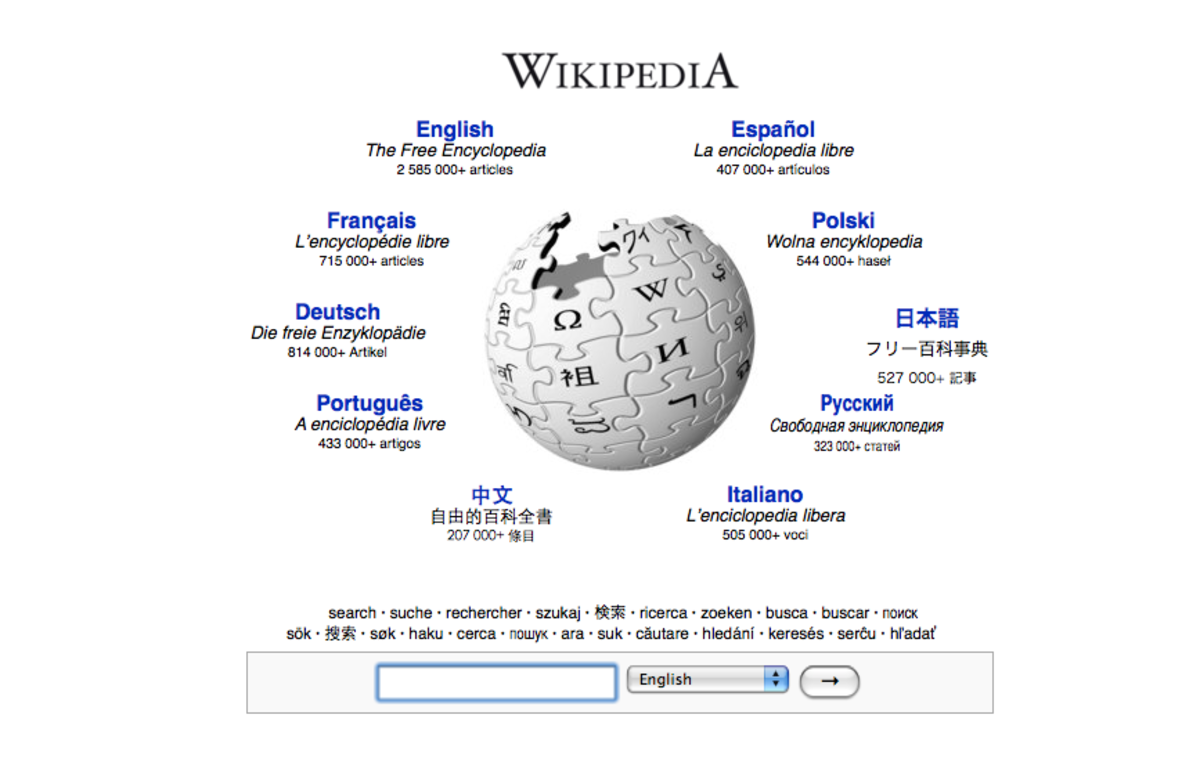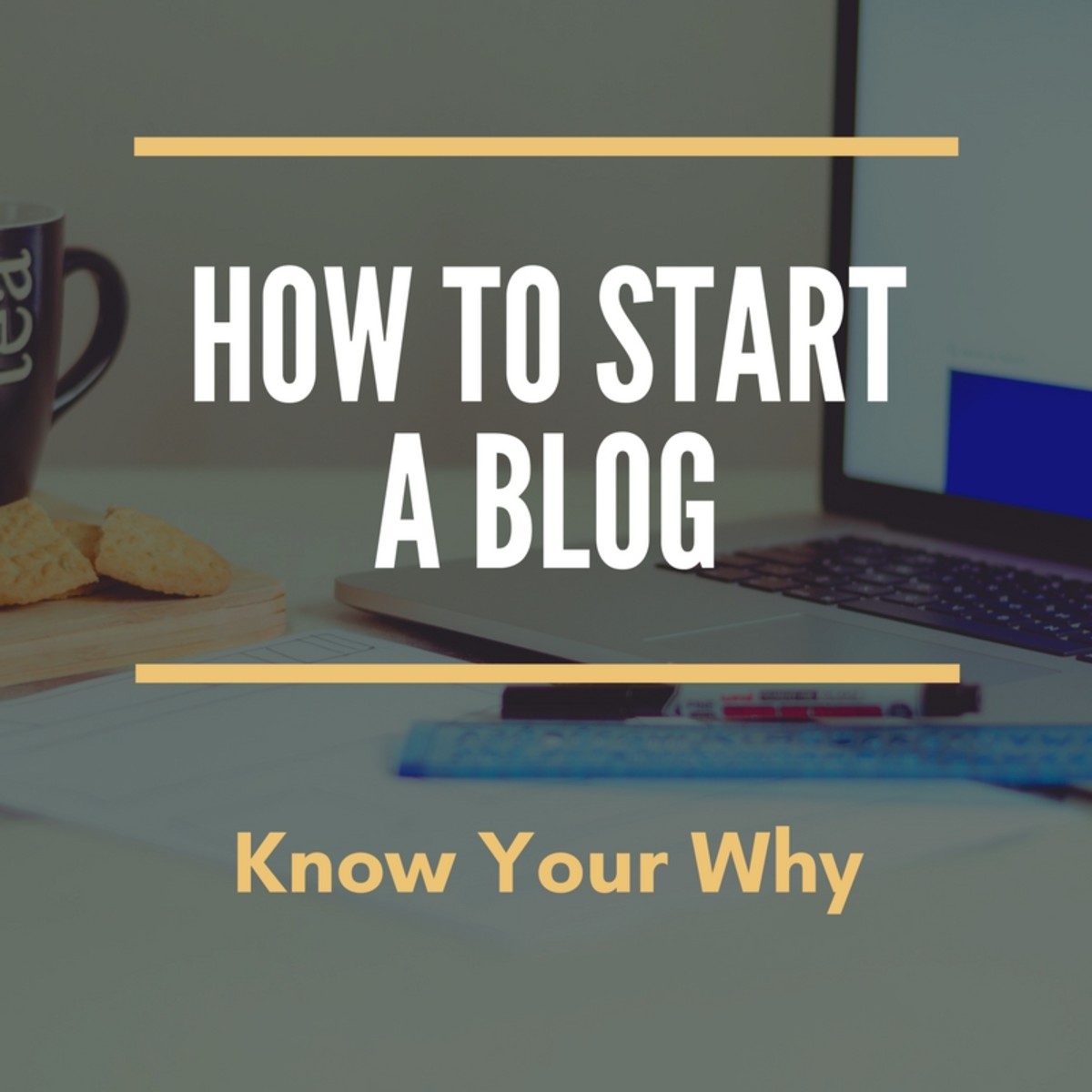Affiliate Marketing - The Best Way To Monetize Your Website
Introduction
If your website is still establishing itself and you are looking for a way for it to bring in more revenue, the world of affiliate marketing might hold the answer.
Affiliate marketing is an extremely popular entity in the online marketplace, both for the merchants and the affiliates themselves. It is a way for the average person looking to make a second income from the internet to realise that income by referring other people to specific products, and receiving a referral fee for doing so.
Affiliate marketing works well as a means to make more money from your website as you can pick and choose the programs that work best for you. You can also apply the same principles to your blog if you have one, to enable you to make some cash from that as well.

Is affiliate marketing easy?
Like everything, it demands a level of input from you, especially in the beginning. However once the relationships with the merchants have been set up (the merchant is the company which offers a reward for every new customer or sign up you send them) an affiliate marketing program can pretty much run on autopilot.
The trick to getting the best results from any affiliate marketing opportunities is to find the ones which most closely match the content of your website. When you are considering becoming an affiliate it's well worth spending some time analysing what kind of people visit your site, and which products and services they are most likely to be interested in.
For example, if your site is all about saving money you could search for merchants who offer heavily discounted products to their customers. Another option might be to find a newsletter which gives free advice and tips on how to save money on a daily basis. When you start to think about your website audience you will find lots of opportunities will present themselves to you.
How do you find the products to promote?
There are two main ways to do this. The first method is to sign up with a website that gathers all the best affiliate programs together and allows you to use as many as you like by becoming a free member.
Sites such as Commission Junction are extremely useful for the affiliate marketer as they allow you to manage all your affiliate programs from one single place. Any and all payments you receive from the programs you are a member of will go into a single account, and you will be paid once your balance goes above a certain threshold. This threshold varies according to the website, but is not usually very high.
Some merchants require you to apply for their affiliate program; this is usually little more than a formality which allows them to take a look at your website to check that it is related to their product and they would be happy for their advert to appear there.
Sites such as this are also useful in that you can search among the programs listed to find products relevant to your site. They will usually be categorised and can often be narrowed down to different types of affiliate scheme. For example, some programs pay you for providing leads rather than sales. These schemes will pay a smaller amount per successful lead - perhaps only a few cents - but they only require that a person clicks through to their site and signs up for a free newsletter, or leaves their email address to request further information about a product. Those few cents really add up when you have a large number of website visitors on a daily basis, even if only a small percentage clicks through to complete the required action.
The second method is more hit and miss. Simply enter the kind of affiliate program you want to find into a search engine and see what results come up. This can unearth some real gems, but it can also take a lot longer to find them.
This method also has the disadvantage of having to have several separate affiliate accounts; you will then have to reach payout in each one before receiving any money.
Is it advisable to promote affiliate products that can deter people from buying products from your own site?
If you sell products directly from your website then it's definitely advisable not to try and send potential customers elsewhere for a similar product. You might get a nice affiliate commission for doing so, but if that customer wants to return to buy a second product they will be returning to the merchant's site - not yours.
Promoting products offered by a merchant works far better if your website is purely an information site. In fact this is one of the best ways to really make some cash from affiliate marketing. Many people start out with a single information site and expand into dozens of websites on many different topics once they realise the potential of affiliate marketing.
Many people do not like a hard sell when they are viewing websites. Most people use the internet to look for information on a specific subject, and they are more likely to keep searching if they come across a site that is just trying to sell them something. Information sites work particularly well when used to insert affiliate links as the surfer feels comfortable in browsing round the site without getting the hard sell.
If they click on one of your affiliate links to find out more about a product or service, they do so of their own volition - but they are far more likely to continue on and request more information or buy a product when this method is employed.

How do you get traffic to your affiliate sites?
There are several ways to raise the traffic levels you are getting, but one of the best ways is to make sure you have quality content which is updated regularly.
Search engine spiders regularly crawl the web looking for new and updated content, following links from one page to another. Search engine results are determined largely through the activity of these spiders and what they find.
The more popular your pages are, the more often they are updated and the more links that come in and out of your site, the more likely it is that your site will feature highly in relevant search engine results. This alone will lead to more traffic.
It is also worth spending some time optimising the content of your site to make sure it is as appealing as possible to the search engines. Perhaps the best - and easiest - way to optimise your content is by making sure your keyword density is within the recommended levels.

What exactly is keyword density?
Keyword density is a measurement of how often certain keywords appear within the text of each page on your site. The keywords will obviously vary according to the topic of your website. For example, if we take the example given earlier of a website dedicated to saving money, appropriate keywords might include "saving money", "money saving tips", "money saving advice", "how to save money", and so on. These would be known as keyword phrases, but single words are also highly useful.
To optimise each page fully, make sure the keywords appear in the text two to three per cent of the time. To work this out, simply count the total number of occasions the keywords appear, and divide that number by the total number of words on the page, before multiplying by a hundred to get the final percentage. This should be between two and three per cent.
If it is lower, simply adjust the wording to accommodate the keywords or phrases a few more times. This alone will ensure your website appears higher in the search engine results for those search terms you have included.
How many affiliate programs should you promote on each site?
There is no easy answer to this. The thing to avoid is having a website which is packed full of affiliate links and very little else. If you have a genuine interest in the subject of your website and can give out plenty of useful information alongside your affiliate links, you will generally see far better results than if you try and sell each product in your text. The main rule of thumb is to try several affiliate programs and see which ones work best on your site. Rotate them round; try different programs and place the links to them in different positions to see which placements receive the highest click through rates.
Some people have made a full time income out of affiliate marketing, and it can certainly change your life if you end up with a whole network of sites on different subjects.
It's best to start small though, and keep a record of which affiliate programs are performing best for you. When you find one that works well, run with it and enjoy the extra income.
The beauty of affiliate marketing is that if you do start to create a network of sites on different subjects, you will find that each one virtually runs by itself once it is established. Affiliate marketing truly does offer the potential of a passive income that keeps coming in even when you are not working - which makes it ideal as a second income, or even a full time and permanent one.
Other Useful Hubs
- ARE TRAFFIC EXCHANGES A VIABLE WAY TO BUILD YOUR ONLINE BUSINESS?
For the webpreneur who is looking for another way to get more traffic to their website, traffic exchanges offer a number of advantages. But to make the most of the benefits they offer you need to understand... - DEVELOPING CONTENT AND INFORMATION WEBSITES
Chances are you've seen at least one or two of these sites when browsing the internet... large websites that are comprised entirely of short to mid-length informational articles. You might not have thought... - How You Could Make $100.00 Daily From AdSense
Making money from Google Adsense is the easiest way and most popular way to make money online. Thousands and millions of internet users are using AdSense to make money from their blog, from hubpages, from... - How to Make a Brochure with Free Online Tools
Brochures can be a very important part of your business or organization as far as publicity. Oftentimes printing these can be very expensive, whether you're paying someone to design the layout or if you're printing yourself and you suffer the costs - The Biggest List Of Google Adsense Alternatives On The Net
For the webmasters who are either not accepted into the program, or do not want to use Adsense ads, the following Google Adsense alternatives will be worth having a look. The list contains more than 180 adsense alternative sources which contains ever - If You Want To Make Real Money Online, Forget Adsense.
There are better ways to make money online than Adsense. I know that many people use Adsense as a way to earn some money from their websites. If you'd like to make a little bit of money online, then Adsense is... - How To Get Traffic From Non-English Domains
I have been using non-English bookmarking sites with great results. Here is the biggest list of working foreign language bookmarking sites on the net and how to get more traffic from non-English domains and sites
This hub brought to you...
by Julie-Ann Amos, professional writer, and owner of international writing agency www.ExquisiteWriting.com
Why not create your own HubPages? It's fun and you can make revenue from Adsense and other revenue streams on your pages. JOIN HUBPAGES NOW - SIMPLY CLICK HERE...
Click here to add this page to StumbleUpon
This work is licenced under the Creative Commons Attribution-Non-Commercial-No Derivative Works 3.0 Unported License. To view a copy of this licence, visit http://creativecommons.org/licenses/by-nc-nd/3.0/ or send a letter to Creative Commons, 171 Second Street, Suite 300, San Francisco, California 94105, USA.









